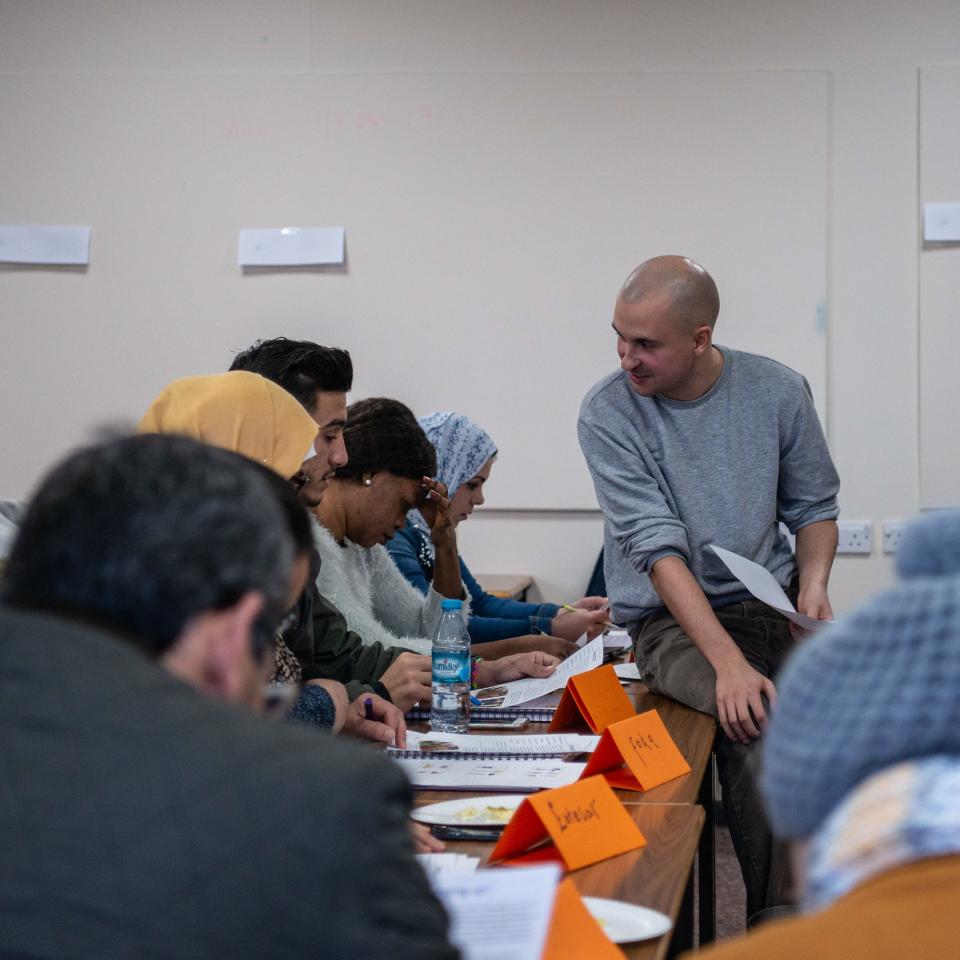
Improving language provision for forced migrants in Wales
Research at the University of South Wales has helped to improve access to English language education for forced migrants in south Wales and informed government policy on ESOL (English for Speakers of Other Languages).
Since 2015, nearly 1,500 migrants have been rehomed in Wales as part of initiatives such as the Syrian Vulnerable Persons Resettlement Scheme. This is in addition to the people dispersed to Wales who have sought asylum in the UK. For example, in 2020, nearly 3,000 people seeking sanctuary were housed across Swansea, Newport, Cardiff and Wrexham. Moreover, since the beginning of the war, over 3000 Ukrainian refugees have arrived in Wales.
All of these forced migrants need English language skills to integrate into their new communities. English language skills are essential to help people access work and education, and to develop friendships and a sense of belonging. However, cuts to adult education budgets mean that access to appropriate language classes is often difficult with many facing a long wait or only being offered a few hours of English classes (ESOL) each week.
Dr Mike Chick from the University of South Wales has worked with a number of external organisations such as the Welsh Refugee Council (WRC) and Oasis in Cardiff, and Rhondda Cynon Taff County Borough Council, to identify how, within the limits of adult education budgets, language classes can be more effectively organised and better suited to the real life needs of those looking to rebuild their lives in Wales.
Dr Chick’s research highlights the value of a participatory approach to ESOL lessons, where learners bring their ideas and interests, and the classroom is a place of spontaneity, full of learning opportunities and chances for the students to learn more about their new community.
Dr Chick argues that for effective language lessons, there is a particular need for:
- teaching that is tailored to the needs of particular groups of people
- informal language classes that address migrants’ practical daily needs
- more classes and improved access to classes.
Improving access to English classes
Dr Mike Chick’s research has led to improvements in the provision of English language lessons for forced migrants. It has contributed to Welsh Government policy, and helped displaced people in Wales receive language education that is more closely tailored to their needs as refugees in a new community.
His work has also informed Welsh Government’s understanding of the linguistic needs of migrants, and he recently led a review of the Welsh Government’s ESOL Policy (2023)
Refugee and Asylum Seeker Scholarship Scheme
Dr Chick’s work also led to the launch of the University of South Wales’ Refugee and Asylum Seeker Scholarship Scheme. The scheme provides scholarships for four asylum seekers each year and also includes free English language tuition for eligible refugee students before they start an undergraduate degree at the university, In June 2019, Dr Chick was appointed refugee champion for the university, a role which allows him to introduce further initiatives to support refugees and asylum seekers.
These initiatives and roles contributed to the University of South Wales being awarded University of Sanctuary status in 2020.
Research team
Dr Mike Chick – University of South Wales
Research partners
Welsh Refugee Council
